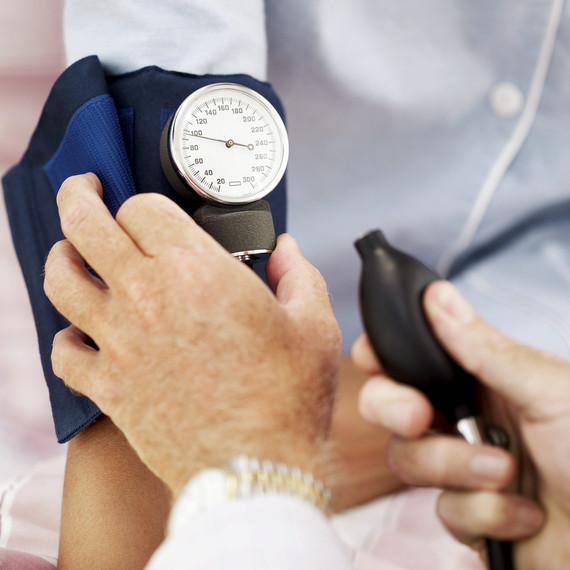Recent research about student loans and mortgages raises the question of whether having too much debt can make you sick.
A recent Gallup survey of more than 11,000 college graduates finds that graduates with a substantial amount (i.e., more than $50,000) of student loan debt are worse off emotionally and physically than other college graduates. These survey results are particularly troubling because the results suggest that it is the debt itself - not the burden of repaying the debt - that seems to make people sick.
The Gallup survey sample included people who graduated from college over a 25-year period. The results indicate that even graduates who had long ago repaid their debts have lingering negative health effects from those debts.
Good Debt, Bad Debt, Ugly Debt
Of course, not all consumer debt is bad. Because of the potential for high future rewards, student loans - like mortgages - typically are viewed as "good" debts because they help the borrower obtain valuable assets. College graduates have higher overall lifetime earnings than people who don't attend college, and homeowners generally have higher overall household wealth than renters.
Despite the recent focus on massive student loan debt, most student loans - like most mortgage loans - are not delinquent and are being repaid. Though most borrowers are repaying their loans on time, numerous groups including the Consumer Financial Protection Bureau and the Federal Reserve have recently warned that rising student loan debt is harming the U.S. economy.
Since the recession, college graduates have delayed buying homes and getting married, and have reduced their overall household spending because they are over-burdened by student loan debt and are fearful about their future. Leaders from both parties have examined and debated numerous bills and proposals to try to find ways to reduce borrowers' monthly debt payments.
Rising student loan debt is now a hot political issue. It should also be a public health issue.
Debt and Health
Rather than continuing to cast over-indebtedness as bad because it prevents borrowers from revitalizing the U.S. economy, a better way to view over-indebtedness is to treat it as bad because it can physically harm individual borrowers.
Just because a particular type of debt might improve your life doesn't mean that the debt might not also hurt you. For example, people borrow heavily to buy homes because homeownership is said to have positive financial and emotional effects on households and communities. Being a homeowner can make you happy and make you feel good about yourself. But, the process of losing your home can make you sad and can make you sick.
The Gallup survey is not the first time researchers have found a link between debts, and mental or physical health. Other studies have shown that people who are deeply in debt are also at a greater risk of having high blood pressure, insomnia, chest pains, heart attacks, and ulcers.
Studies show that people who are under severe economic stress (including homeowners who cannot afford to pay their mortgages) have an increased risk of depression and suicide, often because they view a foreclosure or bankruptcy filing as a visible sign that they have failed in life.
Public health research also indicates that financial stress can trigger or exacerbate eating disorders by causing people to eat too much (or not enough, as the stress of debt sometimes causes people to lose their appetites).
A recent study found foreclosures are particularly stressful because the process can be long and unpredictable. In fact, homeowners report that they feel helpless well before they actually lose their homes and that they sometimes feel helpless if they even suspect they will be involved in a foreclosure process.
While it is not clear whether the economic downturn was the sole factor, recent research conducted by the Centers for Disease Control and Prevention notes a significant increase in the suicide rate for middle-aged Americans (aged thirty-five to sixty-four) between 1999 and 2010. The CDC found that suicide rates for some groups increased by 40 percent during that period, which includes the recent housing bust and recession.
Making Student and Mortgage Debt a Public Health, not Political, Issue
Rather than viewing excessive debt as a health concern like excessive drinking or eating, the Government, debt counselling organizations, and financial planners focus on finding solutions to the short-term financial problem, i.e, the borrowers' inability to make debt payments.
Everyone agrees that smoking, binge drinking and overeating is harmful. It is virtually impossible for people to smoke in most public places in this country. Organizations including Alcoholics Anonymous and Mothers Against Drunk Driving stress the negative consequences of drinking too much. Likewise, First Lady Michelle Obama's campaign to encourage healthy eating habits in children is one of many recent attempts to get Americans to eat less, eat better, and exercise.
Student loans and mortgage loans are good, in moderation. But just like smoking or too much booze or butter, too much debt can make you sick. It's time we find more ways to help ailing, over-indebted Americans and that we accept that over-indebtedness is a public health threat, not simply a financial inconvenience to the U.S. economy.
